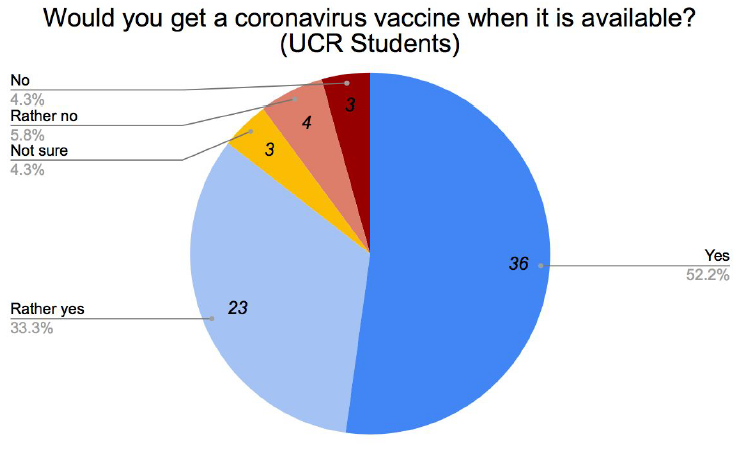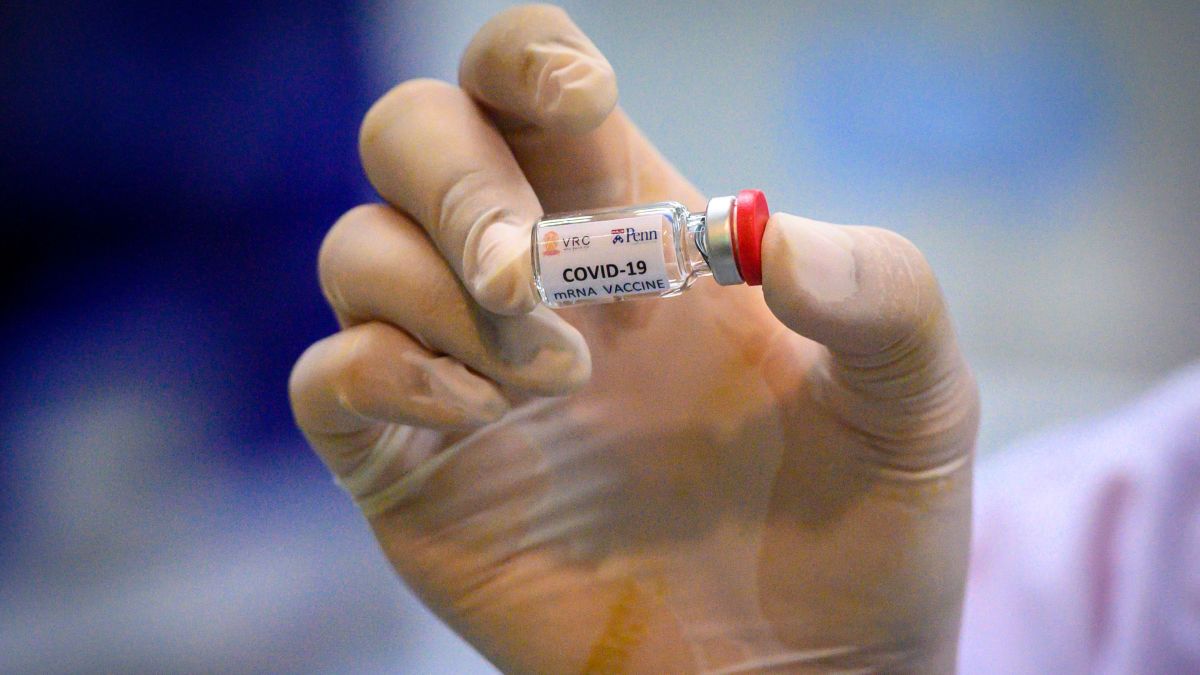By Anna Szczełkun
As the number of worldwide coronavirus cases surpasses 25 million and most of the European countries experience sharp infection increases, more hope is directed towards developing a successful vaccine. With the disease spreading so uncontrollably, vaccination may be the only way for us to return to our normal lives. Currently, over 160 different vaccines against COVID-19 are in development (including one declared by North Korea), with 9 being in the last stage of testing and 3 already approved for a limited use. In recent days, the media have reported on promising results on the vaccine developed by the Oxford University together with AstraZeneca, a British-Swedish company, which may be available for use as soon as at the end of this year. However, development and availability of an effective vaccine may not terminate the pandemic, as many may refuse to take it.
The anti-vaccination movement has been growing rapidly in the last couple of decades and it does not seem to stop during the current global pandemic. In fact, the World Health Organisation included the anti-vaccination attitudes as one of the 10 most dangerous threats to global health. Numerous new conspiracy theories have been created including linking 5G to the coronavirus outbreaks or claiming that the disease is a tool to force microchip-containing vaccines on the population. There is also another, new group showing hesitancy toward coronavirus vaccines. As the vaccines are developed at unprecedented speed, many concerns about the safety arise. Many people point out that such a rushed vaccine may have some health consequences in the long term, which are not visible during the short periods of testing that the coronavirus vaccines currently have.
According to Dr. Fauci, a top infectious disease expert in the United States, it is likely that even with the vaccine available, the US will not be able to develop herd immunity, as a concerning number of Americans is against the new vaccination. To achieve herd immunity for COVID-19, it is estimated that between 60-80% of the people would have to either get the vaccine or go through the disease developing the immunity. According to one poll on 1000 people from April, only 59% of Americans said that they would get the vaccine. Other, more recent poll, shows the number to be as low as 49% with another 31% being undecided. In France, 32% of adults declared that they will not agree to be vaccinated.
 I decided to ask UCR students whether they would get the vaccine if it was available. 85.5% of students, out of 69 asked via an anonymous online survey, said they would be willing to take it, most often mentioning worrying for their families’ health and wanting a return to their normal lives as the reasons behind their decision. Only 7 people checked the option “no” or “rather not” expressing the concerns about the safety and effectiveness of a potential vaccine.
I decided to ask UCR students whether they would get the vaccine if it was available. 85.5% of students, out of 69 asked via an anonymous online survey, said they would be willing to take it, most often mentioning worrying for their families’ health and wanting a return to their normal lives as the reasons behind their decision. Only 7 people checked the option “no” or “rather not” expressing the concerns about the safety and effectiveness of a potential vaccine.
Experts agree that although a coronavirus vaccine may have slightly more side-effects and may be not as effective as other vaccines currently in use, it is still crucial for it to be implemented. It is worth noting that most of the routine vaccines are only effective for 85-95% of recipients, and even with the lower efficiency of the new vaccine, it may still be an efficient weapon against the pandemic. A vaccine is crucial for combating the disease and without it COVID-19 spread may be impossible to stop.
Sources:
Agiesta, J. (2020, May 12). CNN Poll: Most Americans would be uncomfortable returning to regular routines
today. Retrieved from
https://edition.cnn.com/2020/05/12/politics/cnn-poll-americans-uncomfortable-routines/index.html
Branswell, H. (2020, July 27). Covid-19 vaccines may cause mild side effects, experts say. Retrieved from
https://www.statnews.com/2020/07/27/covid-19-vaccines-may-cause-mild-side-effects-experts-say-stressingneed-
for-education-not-alarm/
Cornwall, W. (2020). Officials gird for a war on vaccine misinformation. Science, 369 (6499), 14-15.
doi:10.1126/science.369.6499.14
Corum, J., Grady, D., & Zimmer, C. (2020, July 29). Coronavirus Vaccine Tracker. Retrieved from
https://www.nytimes.com/interactive/2020/science/coronavirus-vaccine-tracker.html
Megget, K. (2020). Even covid-19 can’t kill the anti-vaccination movement. British Medical Journal .
doi:10.1136/bmj.m2184
Tayag, Y. (2020, June 29). Will People Get the Coronavirus Vaccine? Retrieved from
https://elemental.medium.com/why-a-coronavirus-vaccine-cant-guarantee-herd-immunity-1cc75f19e67e
The Local FR. (2020, July 28). One in three French people say they would refuse a Covid-19 vaccine. Retrieved
from https://www.thelocal.fr/20200728/one-in-three-french-people-say-they-would-refuse-a-covid-19-vaccine
Image source: https://dynaimage.cdn.cnn.com/cnn/c_fill,g_auto,w_1200,h_675,ar_16:9/https%3A%2F%2Fcdn.cnn.com%2Fcnnnext%2Fdam%2Fassets%2F200605172453-coronavirus-vaccine-candidate-0523.jpg?fbclid=IwAR2hlgTOKps2q9QDxx99_OUwcZ9JnDEwlftnAqR6SLeSZ0Eni4Kmy23iPRU

